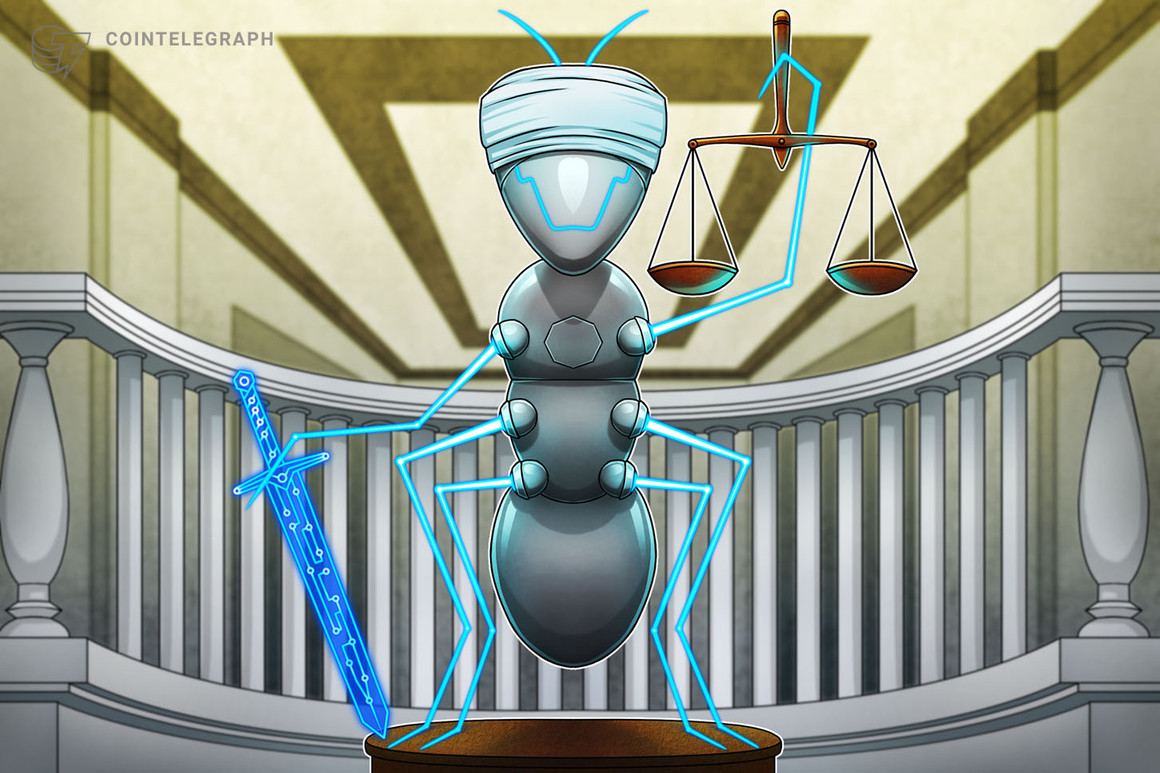Collapsed crypto exchange FTX and 130 affiliates filed for bankruptcy in Delaware on Nov 11. Chaos followed as a number of FTX creditors, investors an

Collapsed crypto exchange FTX and 130 affiliates filed for bankruptcy in Delaware on Nov 11. Chaos followed as a number of FTX creditors, investors and industry experts began to question what would happen next.
Laura Shin, crypto journalist, author and host of the Unchained Podcast, sent a tweet on Nov. 15 questioning whether the alleged inter-loan agreement between FTX and Alameda — the company’s venture capital arm — will affect creditors’ and customers’ ability to get back funds.
Could one big venture success out of FTX Ventures be a viable path to recovery for FTX creditors & customers? @wassielawyer and @ThomasBraziel think so, although that could take up to…10 years.
full episode: https://t.co/xyHyTC59sw pic.twitter.com/DpDXg1oORK
— Laura Shin (@laurashin) November 15, 2022
Caitlin Long, founder of Custodia Bank — a Wyoming-based bank specializing in digital assets — tweeted that this would be the most complex bankruptcy in U.S. history.
I DON’T THINK IT’S AN UNDERSTATEMENT to predict that @FTX_Official Chapter 11 will be most complex bankruptcy in US history. No clear commercial law roadmap re:#crypto for the judge to follow. US bankruptcy law has “presumption against extraterritoriality.” Every creditor doxxed pic.twitter.com/RFipf062RS
— Caitlin Long ⚡️ (@CaitlinLong_) November 11, 2022
According to Long, the international corporate structure of FTX will create complexities. This already appears to be the case, as Bahamian liquidators recently mentioned that their actions may impact the Chapter 11 case, according to Reuters. Moreover, on Nov. 14, FTX filed a document revealing that the exchange may have more than one million creditors involved in the bankruptcy case.
How the FTX bankruptcy differs
Given the complexities involved with the FTX bankruptcy, it’s become clear that this case will likely differ from other United States bankruptcy proceedings. Joseph Moldovan, chair of business solutions, restructuring and governance practices at Morrison Cohen — a New York-based law firm — told Cointelegraph that while there have been complex bankruptcy proceedings in the United States, the FTX Chapter 11 case is unique due to the unknowns.
“What’s most unusual about the FTX bankruptcy is that the debtors are complex entities with significant amounts of debt. Normally, there are months and months of preparation. Corporate bankruptcies are usually very granular, choreographed and developed processes before they are filed,” he said, adding, “This is simply not the case with the FTX bankruptcy. We (creditors and other interested parties) are still waiting for the most basic information related to the 130 various entities that have filed.”
Moldovan added that while bankruptcies like Lehman Brothers and Enron have involved multiple billions of dollars in assets, debt and numerous affiliated entities, the amount of debt, assets and creditors associated with FTX remain unclear.
“What you normally have in a U.S. bankruptcy case that you don’t have here are first day hearings, in which the lead counsel for debtors walks the court and the public through why the case was filed. This gives a sense of what the long-term goal is and how it may be achieved. We have not yet had a first day hearing in the FTX case,” Moldova further remarked. As a result, Moldovan noted that FTX creditors and interested parties are still questioning outcomes:
“We simply don’t have adequate information to obtain answers yet.”
One of the biggest questions that remains to be answered is whether FTX creditors get their money back and if so, when? Margaret Rosenfeld, a corporate securities lawyer, specializing in digital assets, told Cointelegraph that she believes it will take years before any FTX creditors receive a penny back. “This includes FTX customers and other parties FTX may have owed money to,” she said.
Moldovan explained that it is not unusual for creditor recovery to take significant time. In the United States, bankruptcy cases claims of creditors have to be filed by a certain date set forth by the bankruptcy court.
“Once this date is set, a claims agent will take these forms, scan them, and separate the claims by cases. Each of these claims will then be compared with the company’s books and records,” Moldovan said.
Yet, due to the large number of creditors involved with FTX — potentially in excess of one million — along with no current visibility into the company’s bookkeeping practices, Moldovan believes that this process will take longer than normal:
“You can’t make creditor distributions until these claims are analyzed. It’s also way too early to speculate on what kind of distribution creditors will get back. Though in mega cases, such as this, full recovery would be unusual.”
In regard to creditors who took their money off FTX before the exchange collapsed, Rosenfeld explained that these funds can be clawed back, or voided, by a bankruptcy court….
cointelegraph.com
